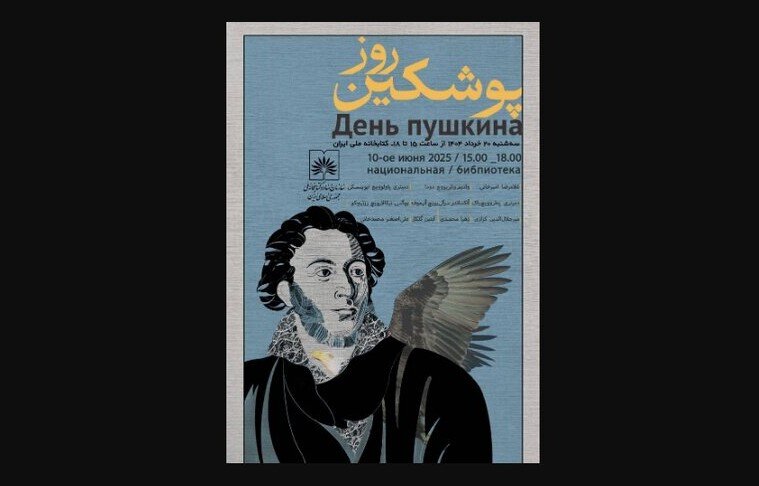TEHRAN – A ceremony honoring the legendary poet of modern Russian literature and pioneer of Alexander Pushkin, to strengthen the cultural ties between Iran and Russia, was held on Tuesday at the International Conference Hall of the Iranian National Library and Archives.
The cultural event was attended in person and online by prominent Russian and Iranian figures, including diplomats, academics, literary researchers and comparative literature and culture enthusiasts, Isna reported.
The programme included other activities, including specialized lectures, presentations on Pushkin’s works, and discussions on comparative literature.
The event was launched as part of an expanding cultural cooperation between Iran and Russia, following the agreement signed by the National Library Director at the 2024 BRICS Cultural Summit.
During that summit, the Iranian national library and archive supervision and the Russian state library agreed to preserve mutual commemorations of the prominent literary figures of both countries, particularly the Russian Persian poet Nizami Ganjavi.
Alexander Pushkin (1799–1837) was one of the great Russian poets and is widely regarded as a fundamental figure in Russian literature. Often called the Sun in Russian poetry, Pushkin’s works had a major influence on the development of Russian, cultural and literary traditions. Born into a noble family in Moscow, he demonstrated an incredible literary talent from a young age, and produced poetry and stories at a young age.
Pushkin’s writing is celebrated with his lyrical beauty, innovative use of language, and a deep quest for humanity. His most famous works include the narrative poem “Ruslan and Ludmila”, novels from “Eugene Onegin”, as well as numerous short stories and fairy tales. In particular, Eugene Onigin is considered a masterpiece of Russian literature, combining poetry with social commentary and character research. Pushkin’s style emphasized classical influences and romanticism, emotion, individualism and national identity.
Aside from his literary achievements, Pushkin was also a keen observer of Russian society and culture, often reflecting issues of identity, freedom and social justice. His works challenged the customs of his time, helped shape the modern Russian literary language, making literature more accessible to more ordinary people.
His influence has spread beyond poetry, inspiring countless writers, playwrights and artists, and nurtured the pride of the nation that continues to this day.
Despite his relatively short life (he died at the age of 37), Pshkin’s influence endures. His innovative approach to storytelling and poetry set the stage for future generations of Russian writers, including Dostoevsky and Tolstoy. Today, Pushkin remains a symbol of Russian literature’s excellence and cultural pride as his legacy is respected through numerous monuments, festivals and educational institutions dedicated to his memory. His works continue to be studied and celebrated around the world, cementing his place as a towering figure in world literature.
sab/

